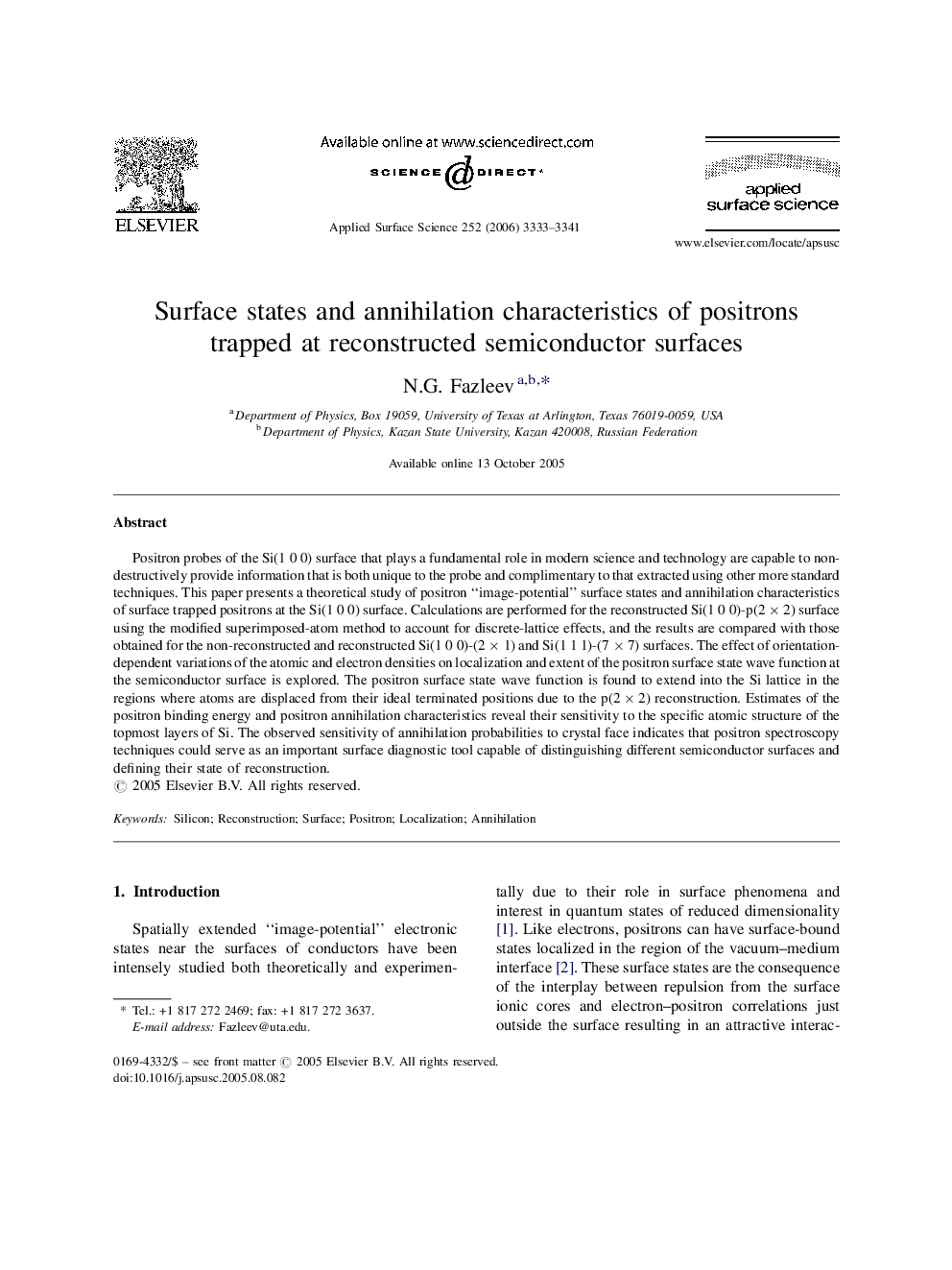| کد مقاله | کد نشریه | سال انتشار | مقاله انگلیسی | نسخه تمام متن |
|---|---|---|---|---|
| 5366961 | 1388358 | 2006 | 9 صفحه PDF | دانلود رایگان |

Positron probes of the Si(1Â 0Â 0) surface that plays a fundamental role in modern science and technology are capable to non-destructively provide information that is both unique to the probe and complimentary to that extracted using other more standard techniques. This paper presents a theoretical study of positron “image-potential” surface states and annihilation characteristics of surface trapped positrons at the Si(1Â 0Â 0) surface. Calculations are performed for the reconstructed Si(1Â 0Â 0)-p(2Â ÃÂ 2) surface using the modified superimposed-atom method to account for discrete-lattice effects, and the results are compared with those obtained for the non-reconstructed and reconstructed Si(1Â 0Â 0)-(2Â ÃÂ 1) and Si(1Â 1Â 1)-(7Â ÃÂ 7) surfaces. The effect of orientation-dependent variations of the atomic and electron densities on localization and extent of the positron surface state wave function at the semiconductor surface is explored. The positron surface state wave function is found to extend into the Si lattice in the regions where atoms are displaced from their ideal terminated positions due to the p(2Â ÃÂ 2) reconstruction. Estimates of the positron binding energy and positron annihilation characteristics reveal their sensitivity to the specific atomic structure of the topmost layers of Si. The observed sensitivity of annihilation probabilities to crystal face indicates that positron spectroscopy techniques could serve as an important surface diagnostic tool capable of distinguishing different semiconductor surfaces and defining their state of reconstruction.
Journal: Applied Surface Science - Volume 252, Issue 9, 28 February 2006, Pages 3333-3341